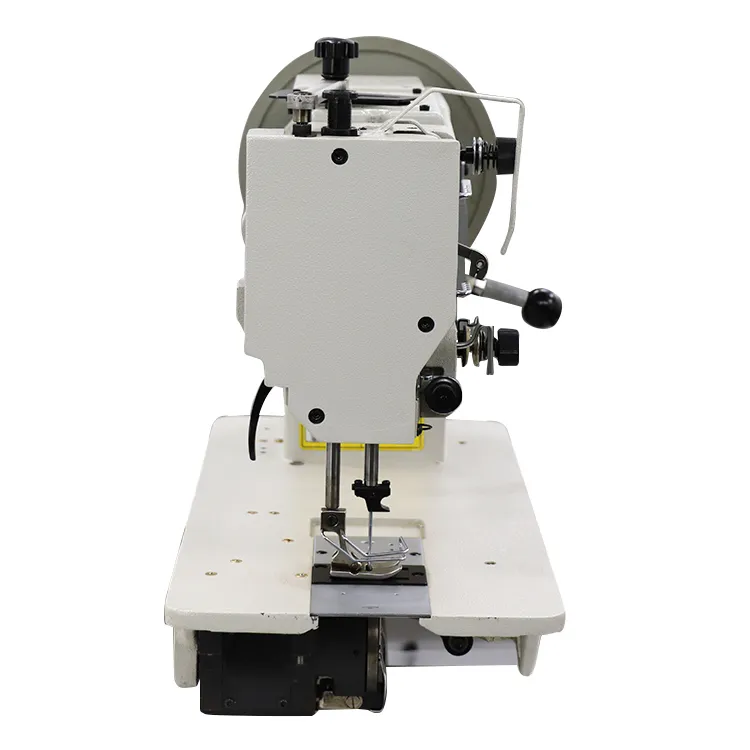Choosing the Best Sewing Machine for Heavy Fabrics and Thick Material Projects
Choosing the Right Sewing Machine for Thick Materials
When it comes to sewing heavy or thick materials, such as denim, canvas, leather, or multiple layers of fabric, having the right sewing machine is crucial for achieving professional results. Not all sewing machines are built the same; some are designed to handle lightweight fabrics, while others excel at managing the weight and bulkiness that come with thicker materials. In this article, we will explore the key features to consider when selecting a sewing machine specifically for sewing thick materials.
1. Motor Power
One of the most critical factors to consider is the motor power of the sewing machine. Machines with stronger motors can handle thicker fabrics more efficiently. Look for machines that have at least a 1.0-1.5 amp motor. These machines tend to have more robust performance and can sew through multiple layers of fabric without faltering.
2. Presser Feet Options
The type of presser foot that comes with a sewing machine can make a significant difference in sewing thick materials. Look for machines that offer a range of presser feet, such as walking feet or Teflon feet, specifically designed for heavy fabrics. A walking foot helps to feed multiple layers of fabric evenly, while a Teflon foot glides smoothly over sticky materials like leather or vinyl.
3. Adjustable Presser Foot Pressure
When working with thick materials, it’s essential to have control over the presser foot pressure. An adjustable presser foot allows you to customize the amount of pressure applied to the fabric, which is vital for achieving even stitches and preventing puckering or dragging. Make sure the sewing machine you choose has this feature.
4. Stitch Types and Lengths
sewing machine to sew thick material

Different stitches serve various purposes, especially when dealing with thick fabrics. A good sewing machine should have a variety of stitch options, including straight stitches, zigzag stitches, and even decorative stitches. Additionally, being able to adjust stitch length is essential when sewing thick materials. Longer stitch lengths are usually preferred for heavy fabrics to allow for better flexibility and easier movement.
5. Durability and Build Quality
For sewing thick materials, a durable machine is non-negotiable. Look for machines with a solid metal frame rather than plastic components. A heavy-duty sewing machine will not only provide better stability but also withstand the rigors of sewing multiple layers of thick fabrics.
6. Needles and Thread Considerations
When tackling thick materials, it’s important to use the right needles and thread. A sewing machine that can accommodate large, robust needles (like a 16 or 18 size) is ideal for heavy fabrics. Similarly, using heavy-duty thread will help prevent breakage and ensure strong seams. Make sure your sewing machine is compatible with such needles and threads.
7. Brand and Model Recommendations
A few brands are recognized for their reliability and efficiency in handling thick materials. Models like the Singer Heavy Duty series, Brother PQ1500SL, and Janome HD3000 are well-regarded for their performance with heavy fabrics. Research user reviews and feedback on these models to find the best fit for your specific needs.
Conclusion
Choosing a sewing machine for thick materials requires careful consideration of several factors, including motor power, presser foot options, and overall build quality. By ensuring your machine has the right features, you pave the way for successful sewing projects that involve heavy fabrics. Investing in a quality machine will not only enhance your sewing experience but also elevate the quality of your finished products. Happy sewing!
-
Industrial Cylinder Arm Sewing Machine: Revolutionizing Heavy-Duty SewingNewsJul.28,2025
-
Cylinder Arm Sewing Machine: Perfect for Special Sewing ApplicationsNewsJul.28,2025
-
Cylinder Bed Sewing Machine: Essential for Sewing Complex MaterialsNewsJul.28,2025
-
Heavy Duty Sewing Machine: The Essential Tool for Industrial ApplicationsNewsJul.28,2025
-
Computerized Pattern Sewing Machine: Revolutionizing Precision StitchingNewsJul.28,2025
-
Heavy Duty Industrial Sewing Machine: Power Meets PrecisionNewsJul.28,2025
-
Leather Sewing Machine: The Industrial Standard for Tough MaterialsNewsJul.18,2025





























